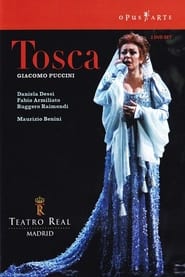detail profile fabio armiliato

Riwayat Hidup
Fabio Armiliato (born 17 August 1956, Genoa) is an Italian operatic tenor.
Armiliato has been referred to critically as "the best Chénier of our time" (Landini, L'Opera).
In 1992 he sang the role of Mario Cavaradossi at the Vlaamse Opera.
The conductor was Silvio Varviso.
In 1993, he debuted in the Metropolitan Opera House in New York in Il trovatore, returning later in Aida and Madama Butterfly.
He has also performed in the Teatro alla Scala, Milan, in the Opéra de Paris, and in San Francisco Opera.
He performed Madama Butterfly in La Scala, in the Puccini Festival in Torre del Lago, and in the New National Theatre Tokyo.
He worked with Zubin Mehta in a five-act version of Don Carlo in Munich and Florence.
In 2000 he was awarded with Beniamino Gigli Prize.
In the 2007/08 season, he made a debut as Alvaro in La forza del destino in Monte Carlo, followed by La fanciulla del West in Rome and Norma in Bologna; in 2008/09, he performed Tosca in Florence, Adriana Lecouvreur in Palermo and La fanciulla del West in Seville.
In 2008, he participated in the Puccini 150th Anniversary Gala Concert in New York.
In 2012, he appeared in the Woody Allen film To Rome with Love as a man with fantastic operatic voice, but only while in the shower.
His partner was the soprano Daniela Dessì, with whom he frequently performed and recorded.
Source: Article "Fabio Armiliato" from Wikipedia in English, licensed under CC-BY-SA 3.
0.
Info Pribadi
Peran Yang Di Mainkan Fabio Armiliato
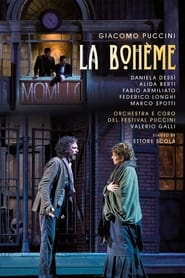 Puccinis masterpiece La Bohme is by...
Puccinis masterpiece La Bohme is by...Puccini: La Bohème 2016
Puccini's masterpiece La Bohème is by far the most represented opera in the world. At the famous Puccini Festival in Torre del Lago (2014), where Puccini composed his main operas, La Bohème is directed by one of Italy’s greatest film directors: Ettore Scola, the creator of a high number of award-winning seminal films. As he explains in the programme notes, as soon as he was approached to stage La Bohème he had to fight hard to resist the temptation to give life to his “revolutionary” ideas; in the end, he decided for a traditional looking, rich, grandiose and detailed Bohème. Together with the exceptional cast of Daniela Dessì, Fabio Armiliato, Alessandro Luongo, Marco Spotti and Alida Berti, this production makes for an incomparable great performance.
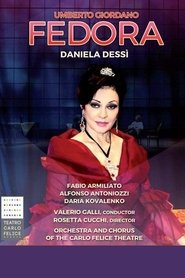 Based on Rosetta Cucchis new staging...
Based on Rosetta Cucchis new staging...Fedora - Teatro Carlo Felice 2015
Based on Rosetta Cucchi’s new staging of Umberto Giordano's Fedora at Teatro Carlo Felice, Ipanov bears witness to incessant survivor guilt, unable to escape restless remembrances of his ill-fated family and strongest regrets – betrayal, disgrace, loss and abandonment.
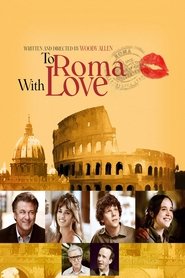 Four tales unfold in the Eternal...
Four tales unfold in the Eternal...To Rome with Love 2012
Four tales unfold in the Eternal City: While vacationing in Rome, architect John encounters a young man whose romantic woes remind him of a painful incident from his own youth; retired opera director Jerry discovers a mortician with an amazing voice, and he seizes the opportunity to rejuvenate his own flagging career; a young couple have separate romantic interludes; a spotlight shines on an ordinary man.
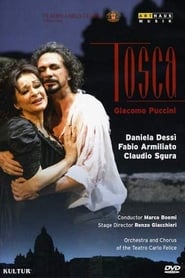 This production from the historic Teatro...
This production from the historic Teatro...Tosca 2012
This production from the historic Teatro Carlo Felice in Genova, Italy, stars the opera worlds power couple, Daniela Dessì and Fabio Armiliato, as lovers Tosca and Cavaradossi. A tragic tale of doomed love interlaced with the age-old themes of jealousy, lust and intrigue, has ensured Tosca its place in the top ten of opera favourites. Probably the best contemporary soprano-tenor combination (a couple in real life, too) Daniela Dessì and Fabio Armiliato are ranged against a worthy opponent in the form of Claudio Sgura as police chief Baron Scarpia.
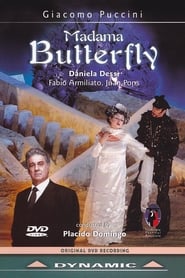 Japan early twentieth century US Navy...
Japan early twentieth century US Navy...Madama Butterfly 2004
Japan, early twentieth century. U.S. Navy Lieutenant B.F. Pinkerton inspects the house he has leased from a marriage broker. The broker, Goro, has procured him three servants and a geisha wife, Cio-Cio-San, known as Madama Butterfly. He is enchanted with the fragile Cio-Cio-San. Cio-Cio-San is heard in the distance joyously singing of her wedding. In a quiet moment, Cio-Cio-San shows her bridegroom her few earthly treasures and tells him of her intention to embrace his Christian faith. The Imperial Commissioner performs the wedding ceremony, and the guests toast the couple. The celebration is interrupted by Cio-Cio-San's uncle, a Buddhist priest, who bursts in, cursing the girl for having renounced her ancestors' religion. Alone with Cio-Cio-San in the moonlit garden, her husband dries her tears, and she joins him in singing of their love.
